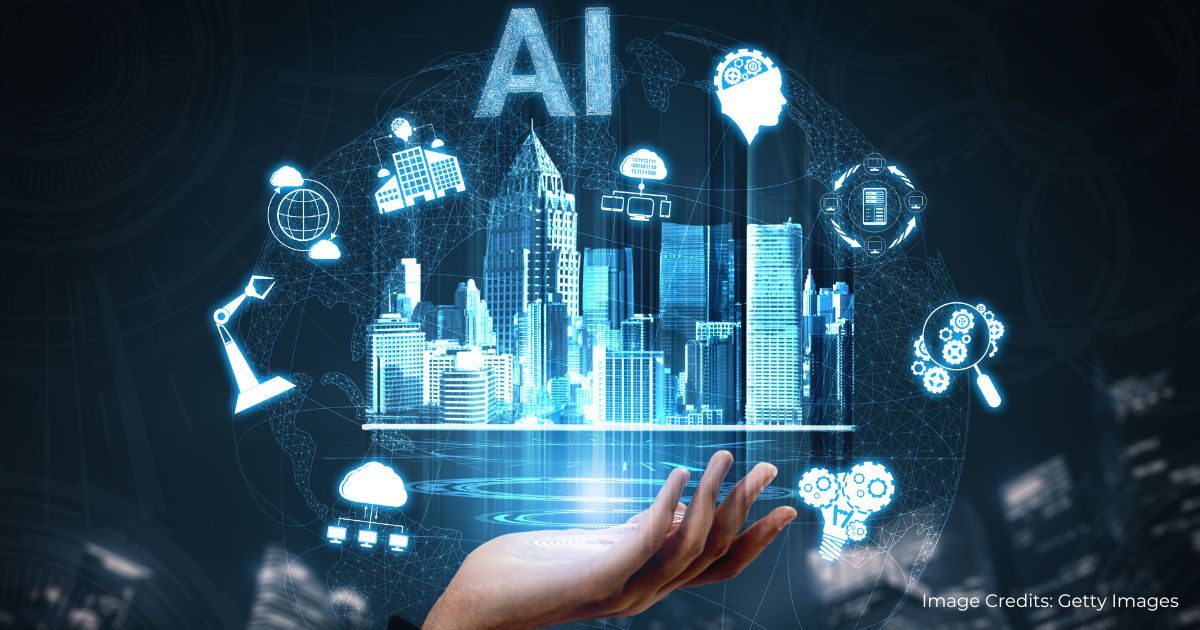Now Reading: The Legal Renaissance: Unveiling the Human-AI Synergy
-
01
The Legal Renaissance: Unveiling the Human-AI Synergy

The Legal Renaissance: Unveiling the Human-AI Synergy
Introduction :
The legal sector is one area that is at the nexus of tradition and change as the globe continues its unrelenting march into the future. The introduction of artificial intelligence (AI) has changed the legal field by providing experts with previously unheard-of tools and insights. But behind the trepidations and worries about AI’s impact on the legal sector, there is a vast world of potential. In this blog, we ask you to consider the novel idea of a symbiotic connection between humans and AI, in which cooperation rather than rivalry is the driving force behind the legal renaissance.
AI In Legal Research :
The foundation of the legal profession is legal research, which necessitates hours of thorough examination and assessment. In this situation, artificial intelligence (AI) emerges as a game-changer, completely altering how attorneys access and evaluate voluminous legal data. In a small fraction of the time it would take a human researcher, sophisticated algorithms can quickly comb through many legal papers, cases, and legislation. Artificial intelligence (AI) systems can extract pertinent data, spot trends, and even offer forecast insights by using natural language processing and machine learning. Due to their increased efficiency, lawyers are now able to educate their clients more thoroughly on difficult legal matters.
Enhancing Legal Decision Making :
The promise of artificial intelligence (AI) goes well beyond legal research since it can help with decision-making. Machine learning algorithms may examine previous case data to find the elements that lead to positive outcomes. With the aid of this predictive analysis, attorneys may evaluate the advantages and disadvantages of their arguments and create winning tactics. Additionally, AI systems are able to continually change their predictions and suggestions based on fresh examples. Legal practitioners may make better judgements and reduce risks by using AI’s analytical skills. But it’s crucial to remember that AI should supplement human judgement, not take its place. AI algorithms lack the knowledge, legal acumen, and contextual awareness that lawyers have. AI and human decision-making work together to enable attorneys to make better informed and strategic decisions that ultimately benefit their clients.
The Human Touch :
While AI has a huge impact on the legal sector, it is important to recognise that human attorneys are still essential for adding a human touch. Legal issues can include sophisticated understandings of clients’ particular circumstances, sensitive conversations, and complicated emotions. Human attorneys are empathetic, intuitive, and skilled at forging bonds of trust with their clients. These characteristics are challenging for AI to mimic accurately. Additionally, lawyers are essential in helping clients grasp complicated legal terminology by translating it into simple terms. They offer individualised counsel, direction, and comfort while facing legal uncertainties. The human touch adds a degree of empathy, comprehension, and individualised judgement that AI cannot match. We can capture the full potential of AI while keeping the crucial human component in the legal profession by adopting a collaborative strategy where AI handles repetitive and data-intensive activities while human attorneys concentrate on client connection, strategic thinking, and advocacy. The cohabitation of AI and human solicitors enables a balanced and all-encompassing approach to legal practise, guaranteeing that clients get the advantages of cutting-edge technology and the caring assistance they want.
The Ethical Considerations :
It is critical to address the ethical issues that arise when AI is more deeply incorporated into the legal sector. When using AI, transparency, accountability, and justice must come first. The possible loss of jobs, unforeseen repercussions, and bias in AI systems are all important issues that require consideration. To make sure that these technologies comply with legal and ethical requirements, legal professionals must work with AI developers. These worries may be reduced and responsible AI deployment in the legal sector promoted by putting in place strong rules and regulations as well as continual oversight and audits.
Conclusions :
Although AI has a significant influence on the legal sector, this impact should be considered as a driver for change rather than a danger to human solicitors. Legal practitioners may improve their talents, efficiency, and client results by making use of AI’s capabilities. But it’s crucial to keep a fine line between AI and human interaction. A collaborative connection where AI enhances human talents rather than supplants them is where the legal renaissance rests. With a new outlook, we can embrace AI’s promise and envision a time where people and AI collaborate to advance justice, effectiveness, and fairness in the legal system. Let’s go on this adventure together and redefine the legal system for future generations.









